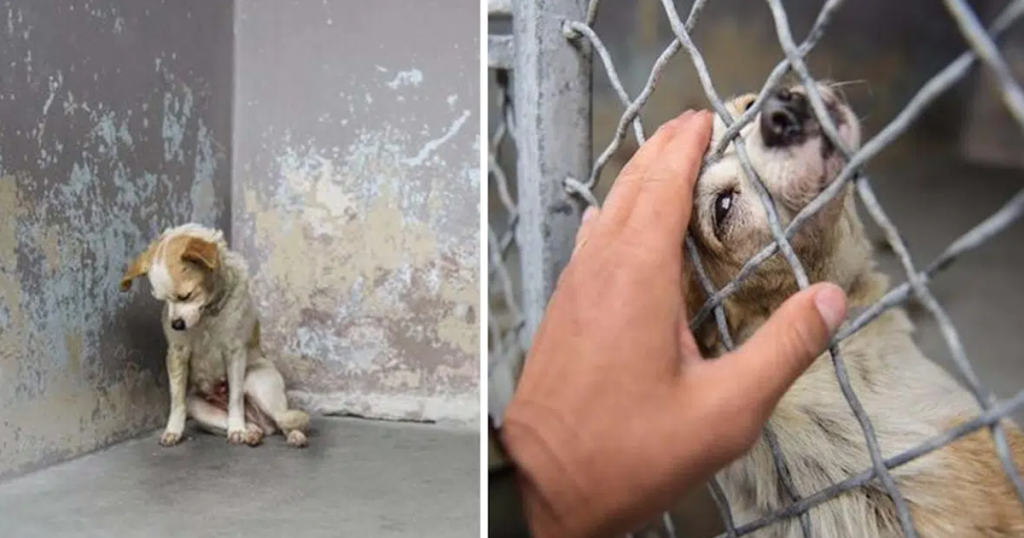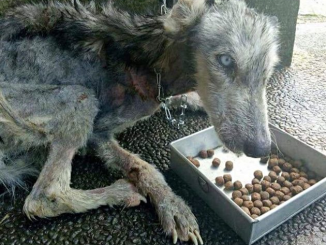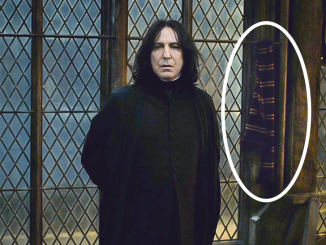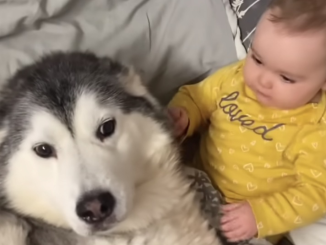
In the impoverished Gaza Strip, where most people struggle to make ends meet amid a crippling blockade, the suffering of stray dogs and cats often goes unnoticed.
Said el-Er, who founded the territory’s only animal rescue organisation in 2006, has been trying to change that. He and other volunteers rescue dogs and cats that have been struck by cars or abused and nurse them back to health – but there are too many.
So in recent weeks they have launched Gaza’s first spay-and-neuter programme. It goes against taboos in the conservative Palestinian territory, where feral dogs and cats are widely seen as pests and many view spaying and neutering as forbidden by Islam.
“Because the society is Muslim, they talk about halal (allowed) and haram (forbidden),” Mr El-Er said. “We know what halal is and what haram is, and it’s haram (for the animals) to be widespread in the streets where they can be run over, shot or poisoned.”
Islam teaches kindness towards animals, but Muslim scholars are divided on whether spaying and neutering causes harm. Across the Arab world, dogs are widely shunned as unclean and potentially dangerous, and cats do not fare much better.
Mr El-Er and other advocates for the humane treatment of animals face an added challenge in Gaza, which has been under an Israeli and Egyptian blockade since the Islamic militant group Hamas seized power in 2007. Gaza’s two million residents suffer from nearly 50 per cent unemployment, frequent power outages and heavy travel restrictions.
With many struggling to meet basic needs, animal care is seen as a waste of precious resources or a luxury at best. Mr El-Er’s group, Sulala for Animal Care, relies on private donations, which can be hard to come by.
Mr El-Er says his team can no longer keep up with the number of injured animals that they find or that are brought to the clinic. “The large number of daily injuries is beyond our capacity,” he said. “That’s why we resorted to neutering.”
On a recent day, volunteers neutered a street dog and two cats that had been brought in. There are few veterinary clinics and no animal hospitals in Gaza, so they performed the operations in a section of a pet store that had been cleaned and disinfected.
“We have shortages in capabilities, tools, especially those needed for orthopaedic surgeries,” said Bashar Shehada, a local veterinarian. “There is no suitable place for operations.”
Mr El-Er has spent years trying to organise a spay and neutering campaign but met with resistance from local authorities and vets, who said it was forbidden. He eventually secured a fatwa, or religious ruling, stating that it is more humane to spay and neuter animals than to consign an ever-growing population to misery and abuse.
Once the fatwa was issued, Mr El-Er said local authorities did not object to the campaign as a way of promoting public health and safety. The Hamas-run health and agriculture ministries allowed veterinarians to carry out operations and purchase supplies and medicine, he said.
The Gaza City municipality provided land for a shelter earlier this year. Before that, Mr El-Er kept the rescued animals at his home and on two small tracts of land that he leased.
The new shelter currently houses around 200 dogs, many of them blind, bearing scars from abuse or missing limbs from being hit by cars. At least one was adjusting to walking with a prosthetic limb. A separate section holds cats in similar shape.
The group tries to find homes for the animals, but here too it faces both economic and cultural challenges. Very few Gazans would keep a dog as a pet, and there’s little demand for cats. Some people adopt the animals from abroad, sending money for their food and care.
Over the past decade, international animal welfare groups have carried out numerous missions to evacuate anguished animals from makeshift zoos in Gaza and relocate them to sanctuaries in the West Bank, Jordan and Africa.
But there are no similar campaigns for dogs and cats, and Gaza has been sealed off from all but returning residents since March to prevent a coronavirus outbreak.
Mr El-Er’s phone rang recently and the caller said a dog had been hit by a car. Volunteers from Sulala brought it back to the shelter on the back of a three-wheeled motorbike and began treating it. Mr El-Er says they receive around five such calls every day.
A sad dog in the shelter can scarcely raise her head and begs softly for a reassuring pat on the back.

John Hwang, an animal enthusiast and photographer, encountered a dog at a shelter that utterly stole his heart.
A sad dog at a shelter can barely lift her head to ask for a hug.
John Hwang, an animal enthusiast and photographer, met a nice dog at the Baldwin Park animal shelter in Los Angeles. The guy often visits such facilities to spend time with animals in need of affection, and it was there that he saw the 10-year-old dog, who was quite depressed and curled up in a corner, not moving at all.
The Dodo was informed by John. “My first reaction was that this dog was bashful or sad and didn’t want to engage with me.” “I was astonished when she came me when she saw me.”
Indeed, as soon as she spotted John, she went on all fours, and he observed that she was shivering slightly.

A shelter dog lifts her head to be petted.
“She appeared clumsy, yet the way she moved was adorable,” John adds. She was filthy, but her heart was pure.”
The dog wanted to be loved. She began by sniffing John from a safe distance, but before long, her body was leaning against the fence, as if yearning to be a member of a family. Of course, John began caressing her, and they spent some time together relaxing and enjoying one other’s company.

“We certainly could have sat there all day,” John continued.
Although the dog seemed afraid at first, she rapidly showed John all the love she had to offer, teaching us not to judge a book by its cover or a dog by its appearance. He has the impression that he is in a refuge.
She came to find a loving home, and her dream was granted. It turns out that this dog’s tiny deed made others feel so much affection and share her tale. Thousands of people have seen John Hwang’s images on social media.

“A lot of people were in love with this female dog and were trying all they could to attempt to get her out,” John says.
Leashes of Love Rescue, which specialized in rescuing dogs from high-death shelters, was among many devastated by the dog’s fate. Cathi Perez, a group volunteer, picked up the dog, called “Annabelle,” as soon as the shelter listed her for adoption. When Annabelle was brought to Cathi, she was standing, offering kisses and waving her tail.
“She was so delighted to get out of her kennel,” Kathy explains. Simply going for a stroll outside. The second time she came out, she was overjoyed. She wasn’t the same dog anymore.

She was brought to the vet for a checkup to cure an eye infection, which was one of a number of health concerns that needed to be treated. She will be picked up in a few days by a lady who has already provided her a permanent home.



Leave a Reply